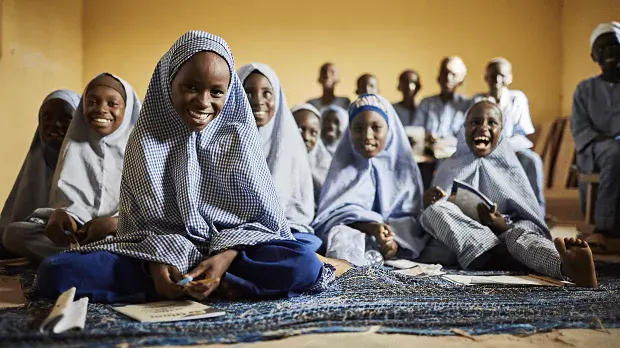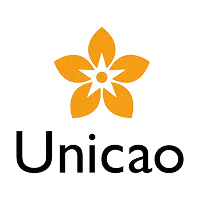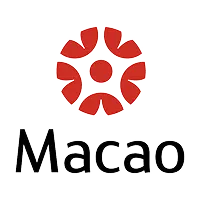
Cocoa Compass aims for 100% child labor & deforestation monitoring
olam food ingredients (ofi), a leading supplier of cocoa beans and cocoa ingredients, today announces it has established child labor monitoring across its managed sustainability programmes, covering 183,000 households in nine countries, and 100% deforestation monitoring across its direct global supply chain, covering almost 12,000 suppliers.
Both achievements are part of Cocoa Compass, ofi’s sustainability ambition for the future of cocoa. In its first impact report published today, the company confirmed that along with its 100% direct supply chain traceability target reached last year, it has hit its remaining 2020 milestones in collaboration with customers and partners and shares progress towards its 2024 and 2030 goals, which include targets on living incomes, child labor and natural capital.
The Child Labor Monitoring and Remediation System (CLMRS) developed by the cocoa business, in collaboration with the Fair Labor Association (FLA), covers 100% of its managed sustainability programmes and is a ground-breaking new tool for monitoring child labor in Cameroon, Uganda, Brazil and Indonesia. This is a critical step towards Cocoa Compass’s goal of eradicating child labor from the cocoa supply chain by 2030. With training and the help of a smartphone, community leads, and field officers now collect detailed social data on individual farming households, helping to identify children at risk and take faster, more effective action.
This data paints a clearer picture of child labor in the supply chain and the interventions needed. For example, in Côte d'Ivoire, which has a reported high prevalence of child labor, 79% of school-aged children attend school and 75% of children identified in a situation of child labor combine school and work and in 97% of child labor cases, children were working for a parent or a relative. These findings are in line with the recent NORC study from the University of Chicago which showed that school attendance has increased significantly in Côte d’Ivoire in the past ten years, indicating that actions like establishing birth certificates, building classrooms, providing school equipment and setting up Village Savings and Loans Associations are contributing to improving access to education.

Gerard A. Manley, CEO of ofi**’s Cocoa Business, said:**
“Child labor anywhere in the cocoa supply chain is unacceptable, but the risk has increased over the past year as schools have closed due to the pandemic. By introducing this level of monitoring across all our cocoa sourcing countries, we want to make sure that cases are identified and dealt with as quickly as possible. Our data shows that there is still a long way to go to eradicate child labor from the cocoa supply chain, but this insight is helping us to tailor our interventions to the situation on the ground and focus on how we can make the biggest impact.”
The cocoa business is also sharing progress towards cutting its natural capital costs for the first time today, reporting a 13% reduction in its processing operations and a 4% reduction in its agriculture operations in the year 2019/20 compared to the previous year. By 2030, it aims to reduce natural capital costs by 30% across its global cocoa supply chain. The company is one step closer to achieving that goal after introducing satellite technology to map tree cover across its entire direct cocoa supplier network. Combining this data with historic deforestation rates, existing forest cover and national park boundaries, it can identify deforestation risk hotspots and take targeted action.
Manley continued: “Through the hard work of our teams and the support of our customers and partners, we have now achieved 100% traceability and 100% deforestation monitoring in our direct supply chain, and 100% child labor monitoring in all our managed sustainability programmes. This is just the beginning. The unprecedented level of data and insight at our fingertips will help us identify how and where to act to achieve our longer-term ambition of a professionalised and quality-focused cocoa supply chain, one where farmers are earning a living income, child labor is eliminated, and the natural world is protected.”
The Cocoa Compass report also sets out ofi’s work with Sustainable Food Lab, Global Living Wage Coalition (GLWC), the Anker Research Network and the Living Income Community of Practice to publish the first-ever living income reference values for Cameroon, Nigeria, and Papua New Guinea, as well as an updated Côte d’Ivoire level. These benchmarks will allow the cocoa business to determine the existing living income gaps in its direct cocoa supply chain and work towards its target for 150,000 farmers to be earning a living income by 2030.
All cocoa data collected by ofi, including child labor and deforestation data, will feed directly into AtSource, the company’s sustainability insights platform, giving customers unprecedented visibility of the social and environmental impact of their cocoa, including full traceability for all of ofi’s directly sourced cocoa.
For more information, please see here.
Notes to editors
Child labor is defined by the International Labor Organisation as work that endangers children or interferes with their schooling, and covers four main categories: a) slavery, debt bondage, trafficking and similar practices; b) the use, procurement or offering of a child for commercial sexual exploitation; c) illicit activities, such as drug trafficking; d) work which by its nature or the circumstances in which it is carried out puts their health, safety or morals at risk. The last category is what is also known as “hazardous work”, and the most common form of child labor found in cocoa, for example children carrying heavy loads or using sharp tools on the family farm. Hazardous work is distinct from the first category of child labor mentioned - forced or slave labor - which, according to the Global Slavery Index 2018, occurs rarely in cocoa. Olam Cocoa has a zero-tolerance policy for forced or slave labor in its supply chain and if it were to identify any instances, it would immediately act, including notifying the appropriate authorities.
Natural capital accounting assigns a monetary value to natural resources like forests and healthy soil, allowing businesses to calculate the true cost of their decisions
About olam food ingredients
olam food ingredients (ofi) is a new operating group born out of Olam International. ofi offers sustainable, natural, value-added food products and ingredients so that consumers can enjoy the healthy and indulgent products they love. It consists of Olam’s industry-leading businesses of Cocoa, Coffee, Edible Nuts, Spices and Dairy.
ofi has built a unique global value chain presence including its own farms, farm-gate origination and manufacturing facilities. ofi partners with customers, leveraging its complementary and differentiated portfolio of “on-trend” food products, to co-create solutions that anticipate and meet changing consumer preferences as demand increases for healthier food that’s traceable and sustainable.
Olam International is headquartered and listed in Singapore and currently ranks among the top 30 largest primary listed companies in terms of market capitalisation on SGX-ST.
To subscribe to the Olam Newsroom please click here (privacy statement here). If you do not wish to receive information from Olam please contact media@olamnet.com
More information on Olam can be found at www.olamgroup.com.
Olam is located at 7 Straits View, Marina One East Tower #20-01, Singapore 018936.
Telephone: +65 63394100, Facsimile: +65 63399755.
Issued on behalf of Olam International Limited by:
ARCADIA Communications Lab





